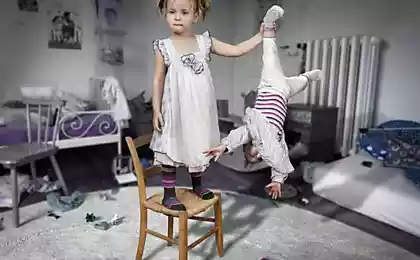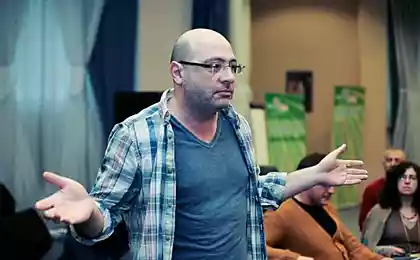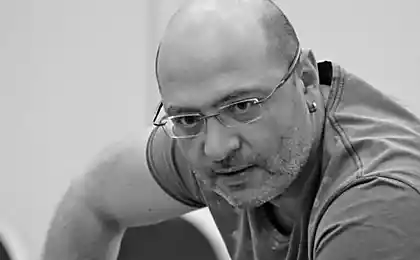698
If there is any doubt, to punish or not to punish the child, don't punish!
In modern pedagogy there have been disputes not only about the appropriateness of punishment, but also about who, where, what, how and for what purpose to punish.
To these questions a definite answer to this day does not exist. Some teachers believe that it is necessary to punish more often, especially during the preschool and early school age to develop good habits of behavior. Others suggest to resort to punishment very rarely, in exceptional cases. And there are those who believe that true education is education without any punishment.
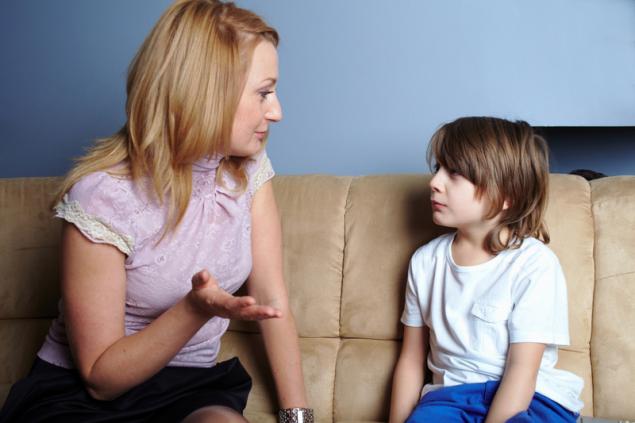
Raising a child consists not only of the positive aspects of the relationship (approval, praise, encouragement) and negative (reprimand, prohibition, punishment). Therefore, punishments and rewards are a kind of lever of the educational process.
But we must not close our eyes to the realities of today. Children, while growing up, of course, make a lot of mistakes, sometimes rough, causing material and moral damage to others (vandalism, cruelty to people, animals), and such actions should not be unnoticed. Another thing that is still strong in teaching the tradition of authoritarian upbringing (family, kindergarten, school), where, unfortunately, teachers and parents attach special importance to it punishment. Although we know that its wrong use can cause irreparable harm to the psyche of the child.
What is "punishment" and "encouragement" from the point of view of pedagogy?
Punishment is a means of pedagogical influence used in cases when the child has not complied with statutory requirements and violated accepted norms of behavior. Thus, the psychological meaning of punishment that the teacher seeks not obedience at any cost, and the personal activity of the child to overcome the mistakes and work on themselves, that is, the child needs to understand, realize, repent and never do it again.
Punishment, as after it assumes the forgiveness of the guilty child, helps relieve stress, which occurs as a result of the offense. Punishing the child, it is important to understand what feelings he has. If you remember your children's misconduct, the punishment and the feelings that were experienced, in these memoirs it may be a huge variety of feelings and experiences: wine, remorse, anxiety, confusion, resentment, humiliation, etc.
And this is what it feels to be a child at the time of the punishment depends on the effectiveness of this educational lever. What sense punishing a child can give us the answer: did the punishment his goal or not. The child's feelings at the time of the punishment and after are an indicator of the effectiveness of the punishment.
Promotion is a measure of pedagogical influence, expressing a positive evaluation of adult teaching, work, children's behavior and encouraging them to further success.
The psychological meaning of encouragement is to a child secured good behavior, attitude, future, did, performed, acted as right and good as it is now. Encourage children requires special attention by teachers and parents as the completion of any business, achievement of what we want the child to be encouraged, in itself, is accompanied by positive emotions, a sense of joy, pride, etc. These feelings arise without reward, they are a reward for the efforts made by the child. Numerous psychological experiments with children of various ages, showed that the smaller the reward, the stronger the change, that is, at a minimum reward job satisfaction more.
For example, very often parents of kids fall into their own trap when they begin to bring every night a child in kindergarten compulsory gift – a bonus for the fact that the baby was without a mother. It takes a little time, and now a child, running from the group to the parents, first wondered what brought him. The gift has superseded the joy of meeting with parents. Moreover, the absence of mandatory promotion after kindergarten can translate into a scandal on the topic "didn't bring any?".
How to encourage and punish the children of preschool and younger school age? But before answering this question, I propose to consider the basic conditions for the validity of the method of punishment. So:
The punishment should be strictly objective (i.e. fair). Children do not forgive the unjust punishment and, on the contrary, are to adequately fair, without resentment at an adult.
To combine punishment with persuasion through heartfelt word a parent or teacher can bring to consciousness the sense of punishment and its causes, as well as the desire to correct their behavior.
The lack of haste in the application of punishment. You must first identify the reasons for the child to negative actions.
To use punishment only when all other methods and means yielded no results or when circumstances require change human behavior, to induce him to act in accordance with the public interest.
The punishment should be strictly individualized. For one child it is enough to look for another categorical requirement, for the third required just a ban.
Not to abuse the punishment. Children get used and not feel guilty. Thus, the meaning of the sentence is lost.
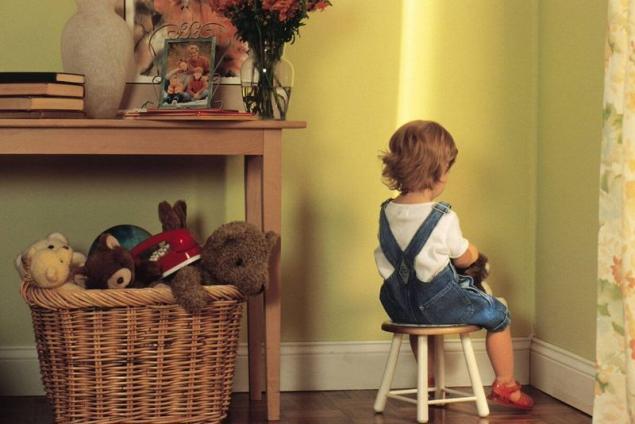
In my opinion the interesting rules are known psychotherapist V. Levi:
Punishment should not harm the health , neither physical nor mental!
If there is any doubt, to punish or not to punish — not punish! No prevention, no penalties just in case!
One thing – one punishment! If actions are done once a lot, the punishment can be severe, but only one, for all the offenses at once.
Unacceptable belated punishment! Sometimes parents and teachers scold or punish for misconduct that was discovered after six months or a year after they occurred. They forget that even the law takes into account the limitation period of the crime. The mere fact detect the misbehavior of the child in most cases is punishment enough.
The child should not be afraid of punishment! He should know that in certain cases, punishment is inevitable. Not punishment, he must fear, not anger, and grief of the parent, the caregiver. If the relationship with the child is normal, their grief for him is a punishment.
Do not humiliate the child! Whatever his fault, the punishment should not be perceived by them as a triumph of strength over his weakness and as an affront to human dignity. If a child is particularly proud of or thinks that in this case he is right and you are unjust, the punishment makes him a negative reaction.
If a child is punished, then he is forgiven! About previous misconduct – not another word!
How to apply aggressive methods of punishment?
Physical punishment continues to remain a popular training method, although we realize the futility and harm of this method of impact on the child. Everyone knows that when you get hit, no remorse, and even more awareness of his act, not feel, rather the contrary, increases internal aggression and the desire to do something bad. There is a perception that physical punishment, in spite of his the harm that they bring, it is highly effective: "Spanking and child at a time like silk". Maybe so, but the trouble is that "the child becomes silk" only temporarily and only while the fear dominates the child, until the baby is afraid. Very often, parents lose the levers of control at the moment when the child ceases to be afraid of.
The cry of parents , many children also perceived as a punishment. The cry of an adult directed at a young child, is not harmless hot air is, in fact, the beating of the child. But not only the Creek, and even carelessly spoken word can hurt the child.
Extremely sensitive to to the girl of preschool age, so praise and even more so to blame them is necessary, taking into account this feature. For girls it is important daily confirmation that she's beautiful, wonderful, etc. it is Very important to hear the girl these words (they must be absolutely sincere) from his father, grandfather or other significant men.
A careless word, especially a significant man, able not only to cause a violent emotional reaction in the form of crying, but also become the mental trauma of childhood, which can remind about yourself after many years in the marital relationship in the form of a sharpened sensitivity to words, phrases, expressions of the man she loved.
This is especially important in the age of 5 years because at this age open, is formed and strengthened one of the main feelings – the feeling of love. The girls love at this age is aimed at the father. Understanding, supportive attitude a significant adult to child in this age is the basis for the formation of harmonious family relationships in the future.

Teachers interacting with children of preschool and younger school age, you need to exercise tact and delicacy, to be very careful when evaluating their behavior. Praise girls need special treatment, unlike the boys, pick up strong emotional component, such as: "good", etc. For girls is very important, who evaluates them and how to evaluate them. It is important for them to be good in the eyes of adults, to impress. Boys are just more important that evaluated their behavior in their activities. Boy you should know, which angered the adult (parent, caregiver, teacher) in order to mentally lose its not right actions and not repeat them.
Preschooler negative evaluation is significant for an adult it can cause an emotional breakdown. The offense in this case overwhelms the child, and not the awareness of correct your behavior.
In the Junior school age special significance for a child becoming a primary school teacher. And younger students are very sensitive to his condemnation and hypersensitive to his praise.
To put in a corner, to sit on the chair, put the door of a school class or sit at the Desk of the penalty box – all these forms of punishment are used for temporary isolation of the violators of order and discipline. When applying such penalties must take into account the age of the child (number of minutes in proportion to the removal of the child's age i.e. if a child of 4 years, then removal should be no more than 4 minutes). It is also necessary to specify in advance with your child the violations for which will be entered the fine. And after the punishment interview: why punish the child if he understood it...
It is important to know that the attitude to punishment and rewards can psychologically be inherited, especially if an adult appreciates his family education. We often encourage and punish their children the way we were punished and encouraged our parents.
Both the punishment and the promotion should not be excessive. Particularly important is the question of the relation of rewards and punishments. Insufficient use of positive reinforcement can create a chronic shortage of incentives. In turn, the promotion for preschool children should be small, as the child.
Also interesting: the Dependence on forgiveness: don't ship children with guilt!
15 IMPORTANT tips from Yulia Gippenreiter education
Positive reinforcement of its activity from adults to children is required for the full development of their personality. In preschool and Junior school age, the attitude of the adult becomes of particular importance. He needs to have an adult not just noticed, but always praised his actions.
Lack of praise from the tutor or teacher is that children become not interesting to the teacher. A lack of praise from parents can cause jealousy between brothers and sisters, and if the child only in the family, shortage of praise can lead to disobedience, decline in parental authority of the child and committing a large number of offences.published
Author: Maria Sosnina
P. S. And remember, only by changing their consumption — together we change the world! ©
Source: www.b17.ru/article/31149/
To these questions a definite answer to this day does not exist. Some teachers believe that it is necessary to punish more often, especially during the preschool and early school age to develop good habits of behavior. Others suggest to resort to punishment very rarely, in exceptional cases. And there are those who believe that true education is education without any punishment.

Raising a child consists not only of the positive aspects of the relationship (approval, praise, encouragement) and negative (reprimand, prohibition, punishment). Therefore, punishments and rewards are a kind of lever of the educational process.
But we must not close our eyes to the realities of today. Children, while growing up, of course, make a lot of mistakes, sometimes rough, causing material and moral damage to others (vandalism, cruelty to people, animals), and such actions should not be unnoticed. Another thing that is still strong in teaching the tradition of authoritarian upbringing (family, kindergarten, school), where, unfortunately, teachers and parents attach special importance to it punishment. Although we know that its wrong use can cause irreparable harm to the psyche of the child.
What is "punishment" and "encouragement" from the point of view of pedagogy?
Punishment is a means of pedagogical influence used in cases when the child has not complied with statutory requirements and violated accepted norms of behavior. Thus, the psychological meaning of punishment that the teacher seeks not obedience at any cost, and the personal activity of the child to overcome the mistakes and work on themselves, that is, the child needs to understand, realize, repent and never do it again.
Punishment, as after it assumes the forgiveness of the guilty child, helps relieve stress, which occurs as a result of the offense. Punishing the child, it is important to understand what feelings he has. If you remember your children's misconduct, the punishment and the feelings that were experienced, in these memoirs it may be a huge variety of feelings and experiences: wine, remorse, anxiety, confusion, resentment, humiliation, etc.
And this is what it feels to be a child at the time of the punishment depends on the effectiveness of this educational lever. What sense punishing a child can give us the answer: did the punishment his goal or not. The child's feelings at the time of the punishment and after are an indicator of the effectiveness of the punishment.
Promotion is a measure of pedagogical influence, expressing a positive evaluation of adult teaching, work, children's behavior and encouraging them to further success.
The psychological meaning of encouragement is to a child secured good behavior, attitude, future, did, performed, acted as right and good as it is now. Encourage children requires special attention by teachers and parents as the completion of any business, achievement of what we want the child to be encouraged, in itself, is accompanied by positive emotions, a sense of joy, pride, etc. These feelings arise without reward, they are a reward for the efforts made by the child. Numerous psychological experiments with children of various ages, showed that the smaller the reward, the stronger the change, that is, at a minimum reward job satisfaction more.
For example, very often parents of kids fall into their own trap when they begin to bring every night a child in kindergarten compulsory gift – a bonus for the fact that the baby was without a mother. It takes a little time, and now a child, running from the group to the parents, first wondered what brought him. The gift has superseded the joy of meeting with parents. Moreover, the absence of mandatory promotion after kindergarten can translate into a scandal on the topic "didn't bring any?".
How to encourage and punish the children of preschool and younger school age? But before answering this question, I propose to consider the basic conditions for the validity of the method of punishment. So:
The punishment should be strictly objective (i.e. fair). Children do not forgive the unjust punishment and, on the contrary, are to adequately fair, without resentment at an adult.
To combine punishment with persuasion through heartfelt word a parent or teacher can bring to consciousness the sense of punishment and its causes, as well as the desire to correct their behavior.
The lack of haste in the application of punishment. You must first identify the reasons for the child to negative actions.
To use punishment only when all other methods and means yielded no results or when circumstances require change human behavior, to induce him to act in accordance with the public interest.
The punishment should be strictly individualized. For one child it is enough to look for another categorical requirement, for the third required just a ban.
Not to abuse the punishment. Children get used and not feel guilty. Thus, the meaning of the sentence is lost.

In my opinion the interesting rules are known psychotherapist V. Levi:
Punishment should not harm the health , neither physical nor mental!
If there is any doubt, to punish or not to punish — not punish! No prevention, no penalties just in case!
One thing – one punishment! If actions are done once a lot, the punishment can be severe, but only one, for all the offenses at once.
Unacceptable belated punishment! Sometimes parents and teachers scold or punish for misconduct that was discovered after six months or a year after they occurred. They forget that even the law takes into account the limitation period of the crime. The mere fact detect the misbehavior of the child in most cases is punishment enough.
The child should not be afraid of punishment! He should know that in certain cases, punishment is inevitable. Not punishment, he must fear, not anger, and grief of the parent, the caregiver. If the relationship with the child is normal, their grief for him is a punishment.
Do not humiliate the child! Whatever his fault, the punishment should not be perceived by them as a triumph of strength over his weakness and as an affront to human dignity. If a child is particularly proud of or thinks that in this case he is right and you are unjust, the punishment makes him a negative reaction.
If a child is punished, then he is forgiven! About previous misconduct – not another word!
How to apply aggressive methods of punishment?
Physical punishment continues to remain a popular training method, although we realize the futility and harm of this method of impact on the child. Everyone knows that when you get hit, no remorse, and even more awareness of his act, not feel, rather the contrary, increases internal aggression and the desire to do something bad. There is a perception that physical punishment, in spite of his the harm that they bring, it is highly effective: "Spanking and child at a time like silk". Maybe so, but the trouble is that "the child becomes silk" only temporarily and only while the fear dominates the child, until the baby is afraid. Very often, parents lose the levers of control at the moment when the child ceases to be afraid of.
The cry of parents , many children also perceived as a punishment. The cry of an adult directed at a young child, is not harmless hot air is, in fact, the beating of the child. But not only the Creek, and even carelessly spoken word can hurt the child.
Extremely sensitive to to the girl of preschool age, so praise and even more so to blame them is necessary, taking into account this feature. For girls it is important daily confirmation that she's beautiful, wonderful, etc. it is Very important to hear the girl these words (they must be absolutely sincere) from his father, grandfather or other significant men.
A careless word, especially a significant man, able not only to cause a violent emotional reaction in the form of crying, but also become the mental trauma of childhood, which can remind about yourself after many years in the marital relationship in the form of a sharpened sensitivity to words, phrases, expressions of the man she loved.
This is especially important in the age of 5 years because at this age open, is formed and strengthened one of the main feelings – the feeling of love. The girls love at this age is aimed at the father. Understanding, supportive attitude a significant adult to child in this age is the basis for the formation of harmonious family relationships in the future.

Teachers interacting with children of preschool and younger school age, you need to exercise tact and delicacy, to be very careful when evaluating their behavior. Praise girls need special treatment, unlike the boys, pick up strong emotional component, such as: "good", etc. For girls is very important, who evaluates them and how to evaluate them. It is important for them to be good in the eyes of adults, to impress. Boys are just more important that evaluated their behavior in their activities. Boy you should know, which angered the adult (parent, caregiver, teacher) in order to mentally lose its not right actions and not repeat them.
Preschooler negative evaluation is significant for an adult it can cause an emotional breakdown. The offense in this case overwhelms the child, and not the awareness of correct your behavior.
In the Junior school age special significance for a child becoming a primary school teacher. And younger students are very sensitive to his condemnation and hypersensitive to his praise.
To put in a corner, to sit on the chair, put the door of a school class or sit at the Desk of the penalty box – all these forms of punishment are used for temporary isolation of the violators of order and discipline. When applying such penalties must take into account the age of the child (number of minutes in proportion to the removal of the child's age i.e. if a child of 4 years, then removal should be no more than 4 minutes). It is also necessary to specify in advance with your child the violations for which will be entered the fine. And after the punishment interview: why punish the child if he understood it...
It is important to know that the attitude to punishment and rewards can psychologically be inherited, especially if an adult appreciates his family education. We often encourage and punish their children the way we were punished and encouraged our parents.
Both the punishment and the promotion should not be excessive. Particularly important is the question of the relation of rewards and punishments. Insufficient use of positive reinforcement can create a chronic shortage of incentives. In turn, the promotion for preschool children should be small, as the child.
Also interesting: the Dependence on forgiveness: don't ship children with guilt!
15 IMPORTANT tips from Yulia Gippenreiter education
Positive reinforcement of its activity from adults to children is required for the full development of their personality. In preschool and Junior school age, the attitude of the adult becomes of particular importance. He needs to have an adult not just noticed, but always praised his actions.
Lack of praise from the tutor or teacher is that children become not interesting to the teacher. A lack of praise from parents can cause jealousy between brothers and sisters, and if the child only in the family, shortage of praise can lead to disobedience, decline in parental authority of the child and committing a large number of offences.published
Author: Maria Sosnina
P. S. And remember, only by changing their consumption — together we change the world! ©
Source: www.b17.ru/article/31149/
Kitchen island: functional comfort and compactness
Ford hopes to make the air of London a little cleaner by using hybrid vans
